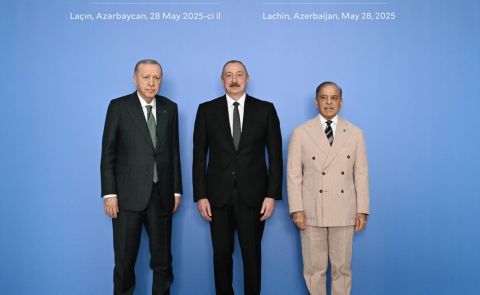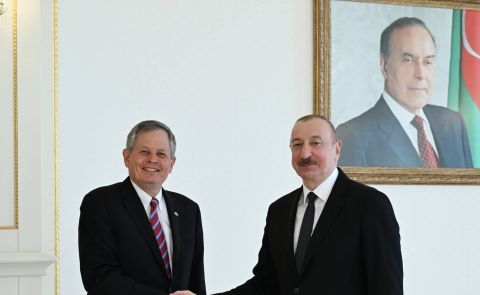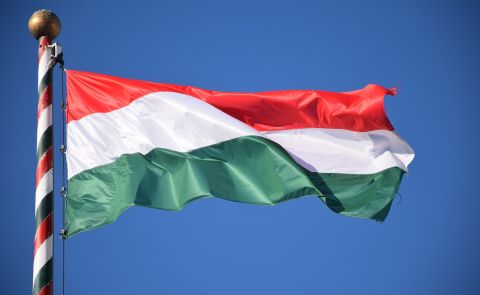
Parliament of Armenia to be dissolved

Monitoring by Anna Vardanyan for Caucasus Watch
As it was envisioned, the Armenian parliament did not re-elect Nikol Pashinyan, the sole candidate, as Prime Minister in the second and final round during a special session on Thursday, November 1. None of the lawmakers voted against or in favor of him, while 13 MPs abstained. According to the constitution, the parliament will be dissolved by the virtue of the law as the PM was not elected in two rounds. This will be the first time in the history of the Republic of Armenia, when a parliament is being disbanded. The legislature will be officially dissolved at a signed order of the president, which comes to effect immediately.
On November 1, after a vote in the parliament, the Prime Minister told reporters that early parliamentary elections will be held on December 9. He also noted that the new electoral code would make the elections more political, as it would provide an opportunity for a wider range of political forces. He also did not exclude that in case of the willingness of parliamentary forces, he will not be against bringing the package of amendments to the National Assembly agenda again.
It should be reminded that the adoption of the draft amendments to the electoral code failed for the second time at the extraordinary sitting of the National Assembly on November 29. Overall, 62 deputies voted for it and two against it, only one vote lacked to pass the changes to the electoral legislation. This means that in the upcoming parliamentary elections in December political forces will participate by the old electoral code, which includes the rating system.
The adoption of this law was considered an important prerequisite for fair and transparent parliamentary elections, but due to the urgency of snap elections there was no sufficient debate about it and there was no time to be examined by international organizations.
Head of the EU Delegation to Armenia, Ambassador Piotr Świtalski, expressed his regret over the non-admission of the electoral code, noting, however, that this failure does not have any impact on the delegation’s commitment to support the country in the upcoming elections. “It is really regrettable as the package of bill of amendments to the electoral code received positive assessment by the president of the Venice Commission. Some of the proposed amendments to the law included the ones proposed by the Council of Europe as well. So, we think it is a missed opportunity to improve the Electoral Code of Armenia,” Nevertheless, the EU Ambassador expressed confidence that sooner or later these amendments will be adopted, because they see how involved the government is in the democratic processes.
For his part, the President of the Venice Commission Gianni Buquicchio told reporters in Yerevan on November 1 that the amendments, which were proposed and not adopted by the parliament, will be again studied after the elections and the Venice Commission will contribute to the best possible electoral legislation. He also noted that he does not see any problems if the elections are held under the current code. “I would have preferred that everything was done with more time but we will also consider the specific situation in Armenia and the need to clarify the situation,” he added. “The elections clarify the situation. If the present interim government will win the elections, they will have a parliamentary majority and they will be in the position to govern the country well. Yesterday, I had meetings with the authorities. The impression was that they are committed to change the situation in Armenia in order to a have stable political scene”.
On the same day, while participating at the “Constitution of the New Millennium" international workshop in Yerevan, Gianni Buquicchio has accused the former Armenian authorities of considering the constitution that has been adopted in 2015 as a means of maintaining the power. In his speech he stated: “The Venice Commission highly appreciated the 2015 constitutional reforms. However, Armenian citizens were dissatisfied with this constitution and implemented a velvet revolution. I do not think the Venice Commission's opinion was wrong. The matter is that the government viewed the Constitution as a tactical tool for maintaining the power”.
Meanwhile, heated debates are being held over the failure to adopt the new electoral code and the expediency of going to the elections under the old code. Many see distinctions between the new and old codes only in the rating system of elections, not the problem that it creates loopholes for oligarchs and regional authorities to enter parliament again. According to the analysis in the “Hraparak” Daily, Pashinyan himself was not inclined to the adoption of the new electoral code and left the process in a substantive flow, indirectly giving advantage to the current code. Thus, Pashinyan was solving two problems, first undermining the political ambitions of separate units in its own team, who were keen to appear in the parliament by all means. On the other hand, there is the issue of having a more predictable opposition. There is no doubt that for Pashinyan it is much easier to work with the Prosperous Armenia Party (PAP) and Tsarukyan than with the "Sasna Tsrer" party and an uncontrolled civil society.
According to the political analyst Aghasi Yenokyan, the rating system provides more opportunities for manipulations, especially in regard to organizing the opposition. Under the conditions of the new electoral code, it would be much more difficult for Nikol Pashinyan to get a political constellation to serve his purposes in the parliament, and to form a distinct opposition in particular. Nikol Pashinyan's teammates saw great opportunities in the amendments of the code to play their own game and to place their desirable people in the parliament.
Siehe auch


Aserbaidschan, die Türkei und Pakistan betonen auf dem Gipfeltreffen in Lachin ihre wachsende strategische Zusammenarbeit

Ilham Alijew trifft US-Senator Steve Daines zur Erörterung der Stärkung der Beziehungen zwischen Aserbaidschan und den USA

Dmitry Volvach Reports 60% Growth in Azerbaijan-EAEU Trade Over Three Years

Ungarn besteht auf gleicher EU-Finanzierung für Armenien und Aserbaidschan

